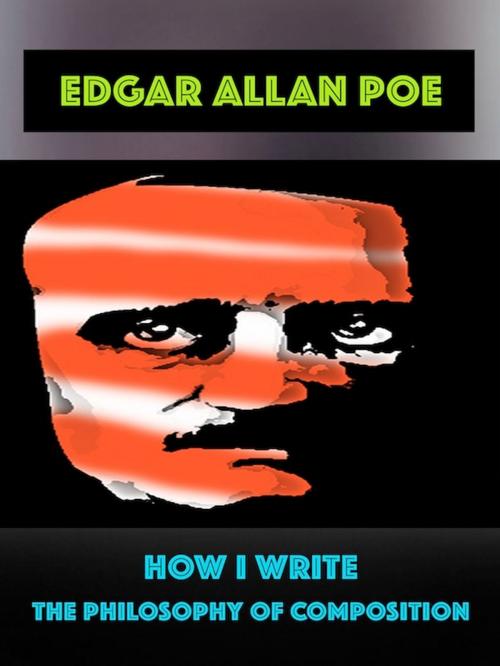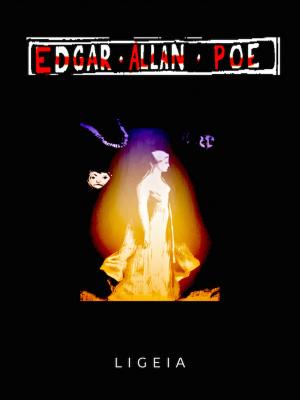Edgar Allan Poe - How I Write
The Philosophy of Composition
Nonfiction, Reference & Language, Reference, Research| Author: | Edgar Allan Poe | ISBN: | 1230001351552 |
| Publisher: | Editions Artisan Devereaux LLC | Publication: | September 18, 2016 |
| Imprint: | Language: | English |
| Author: | Edgar Allan Poe |
| ISBN: | 1230001351552 |
| Publisher: | Editions Artisan Devereaux LLC |
| Publication: | September 18, 2016 |
| Imprint: | |
| Language: | English |
In his brilliant essay How I Write – The Philosophy of Composition, Edgar Allan Poe describes a theory about how good writers write when they write well.
In it he concludes that length, "unity of effect" and a logical method are vital considerations for good writing.
He also makes the assertion that "the death...of a beautiful woman" is "unquestionably the most poetical topic in the world".
Poe uses the composition of his own poem "The Raven" as an example.
Poe believed that all literary works should be short, and that a good work of fiction should be written only after the author has decided how it is to end—and which emotional response he wishes to create, commonly known as the "unity of effect."
EDGAR ALLAN POE (1809-1849) has yet to be surpassed as the greatest practitioner of the classic horror tale. Since their first publication in the 1830s and 1840s, Poe's grotesque and sublime tales of mystery and madness have established themselves as classics of short fiction.
"The finest treatise on composition, in my opinion, and the one which in any case had the greatest influence upon me was Poe's Philosophy of Composition.
—Maurice Ravel
The "unity of impression, the totality of effect" as described by Poe endows a composition with "a very special superiority."
—Charles Baudelaire
Poe takes his place as the first postmodern thinker, a precursor of such figures as Pynchon, Borges, and William Gibson.
—Errol Morris
In his brilliant essay How I Write – The Philosophy of Composition, Edgar Allan Poe describes a theory about how good writers write when they write well.
In it he concludes that length, "unity of effect" and a logical method are vital considerations for good writing.
He also makes the assertion that "the death...of a beautiful woman" is "unquestionably the most poetical topic in the world".
Poe uses the composition of his own poem "The Raven" as an example.
Poe believed that all literary works should be short, and that a good work of fiction should be written only after the author has decided how it is to end—and which emotional response he wishes to create, commonly known as the "unity of effect."
EDGAR ALLAN POE (1809-1849) has yet to be surpassed as the greatest practitioner of the classic horror tale. Since their first publication in the 1830s and 1840s, Poe's grotesque and sublime tales of mystery and madness have established themselves as classics of short fiction.
"The finest treatise on composition, in my opinion, and the one which in any case had the greatest influence upon me was Poe's Philosophy of Composition.
—Maurice Ravel
The "unity of impression, the totality of effect" as described by Poe endows a composition with "a very special superiority."
—Charles Baudelaire
Poe takes his place as the first postmodern thinker, a precursor of such figures as Pynchon, Borges, and William Gibson.
—Errol Morris









![Cover of the book The Forsyte Saga [Complete Series] by Edgar Allan Poe](https://www.kuoky.com/images/2018/may/300x300/1230002309828-vJ4h_300x.jpg)





